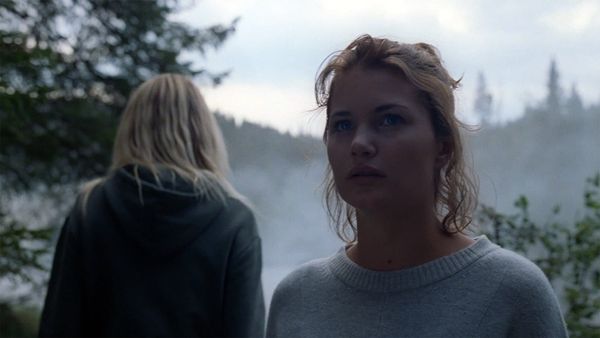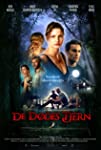Eye For Film >> Movies >> Lake Of Death (2019) Film Review
Lake Of Death
Reviewed by: Jennie Kermode

A much more sophisticated film than its title suggests, Lake Of Death is based on a popular Norwegian novel from 1942 and has an old fashioned quality to it despite attempts to drag it into the modern age (in part by making extensive reference to other films). Its setting, in a remote cabin in the woods beside the titular body of water, may seem cliched now but was fresh in its time, and the stunning natural landscape adds to the sense that this is something a little different, Axel Mustad's cinematography perfectly complemented by John Debney's score.
The young people visiting this cabin are doing so for the last time, in part because they've reached an age at which their lives are about to take them in different directions, in part because Lilian (Iben Akerlie) plans to sell it. She just hasn't felt comfortable there since the disappearance and presumed death of her twin brother Bjørn (Patrick Walshe McBride). Even being here for a few days will be tough, but it has been suggested to her that she needs the experience in order to get closure. When she starts to sleepwalk, her friends sit vigil and take care of her. There's less they can do about her nightmares or her growing uncertainty about what's real, but they try to be supportive.

This isn't just a therapeutic trip. There's fun to be had, swimming and partying. We get a sense of the bonds between them, despite the presence of a Dane who is tagging along as someone's boyfriend and handles being an outsider by making stupid jokes that alienate him further from the others. Even the discovery of a basement which Lilian somehow never knew about is treated as an intriguing mystery to explore together rather than an immediate source of terror. But something is wrong and before long events will take a turn that leaves everyone terrified, not knowing which way to turn or who to suspect.
At its best when taking its time, Nini Bull Robsahm's haunting thriller keeps its cards close to its chest. The ending may not be all that difficult to guess, but there are some very effective red herrings thrown in along the way, and hints of the supernatural mean that we're never entirely certain of the rules by which this game is being played. The final scenes offer a shift in perspective which complicates what has gone before, especially with regard to our emotional interpretation of the characters. All the young actors handle their roles well with Akerlie an impressive, understated lead, holding the viewer's attention at the still centre of the film as everything shifts and rotates around her.
Though it ultimately relies on what was, in the Forties, a very familiar strain of horror, there's something deeper and more uncertain here thanks to the story's broader folkloric context. Robsahm teases this out through little details neatly hidden in and around the central plot. The result is a character-focused story which nevertheless leaves one uncomfortably alert to the smallness of its human participants.
Reviewed on: 16 Jul 2020
















